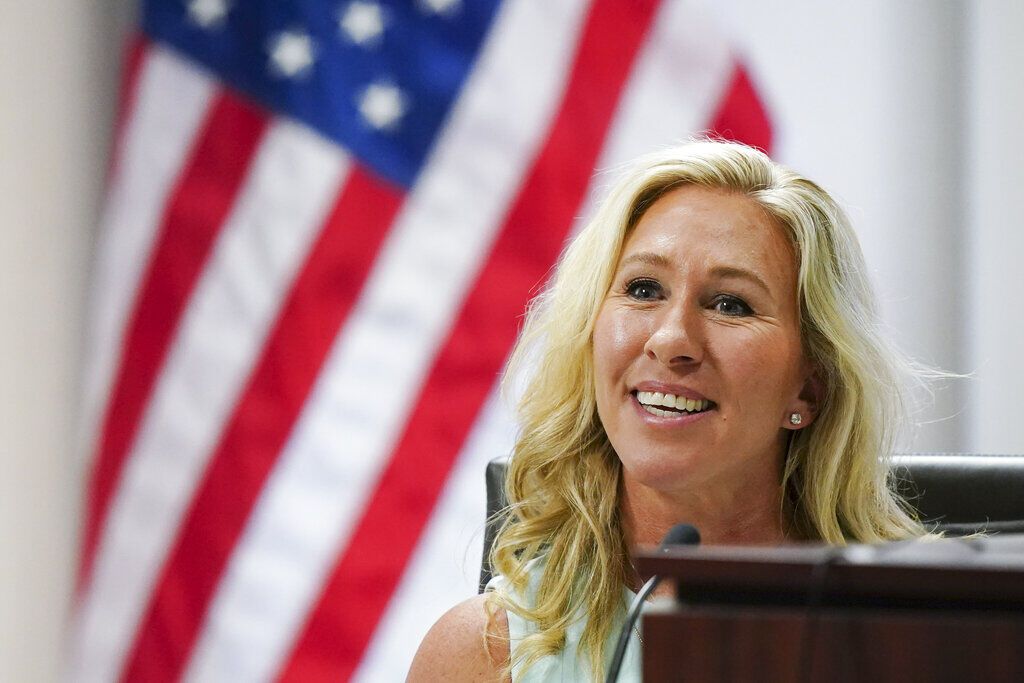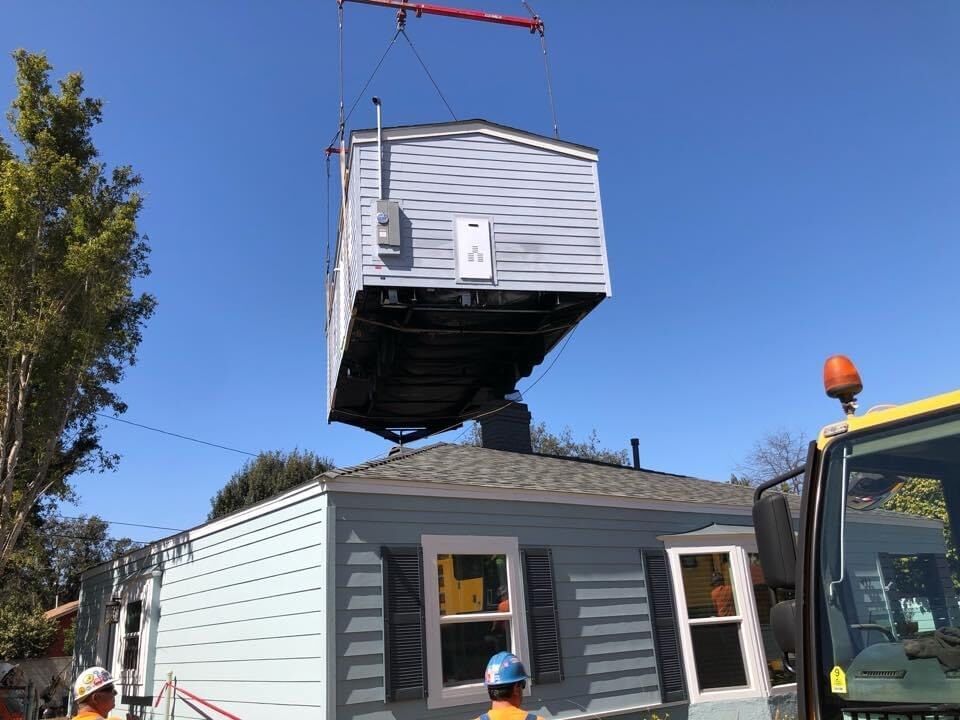Senate committee OKs condo construction bill to require arbitration
A Republican-sponsored bill to require condominium owners and builders to submit disputes over construction problems to arbitration or mediation passed its first hurdle Monday, winning bipartisan approval in a Senate committee.
But opponents call the legislation’s central component a nonstarter and predict the bill will meet its demise in the Democratic-controlled House, despite plenty of optimistic talk at the start of the session about grand compromises to revive stalled condo construction statewide.
State Sen. Cheri Jahn, a Wheat Ridge Democrat, joined the four Republicans on the Senate Business, Labor and Technology Committee voting for Senate Bill 156, while the committee’s other two Democrats – state Sens. Mike Merrifield, D-Colorado Springs and Angela Williams, D-Denver – cast “no” votes.
The legislation, sponsored by state Sen. Owen Hill, R-Colorado Springs, and Assistant House Minority Leader Cole Wist, R-Centennial, and state Rep. Lori Saine, R-Firestone, is one of a handful of bills making their way through the Legislature aimed at boosting available, affordable and attainable housing, as lawmakers like to say. Hill’s bill also adds stricter requirements on homeowners’ associations before they can file a complaint about construction defects.
“Senate Bill 156 is critical to fix current state laws that have essentially brought the construction of new, owner-occupied housing to a halt,” said Downtown Denver Partnership President Tami Door at a lunchtime rally in support of the bill on the east steps of the Capitol.
“We have essentially stopped building condominiums, which means many first-time homeowners, seniors, young professionals and others have been blocked from home ownership at a time when our state’s rental market has absolutely skyrocketed,” she said.
Lakewood Mayor Adam Paul hammered the point home, shaking his head when he said the suburban city saw its last condo built in 2006.
“I wish I could say I’m the first (Lakewood) mayor to stand before you today and plea with you to do something, but I’m actually the second,” said Paul, one of 40 members of the Metro Mayors Caucus, which endorsed Hill’s bill earlier this month.
He described how Lakewood had planned for construction of owner-occupied, affordable housing at its seven Light Rail stops. “But what we’ve seen is apartments, apartment, apartments.” Paul allowed that rental housing is part of an appropriate mix of housing but added, “They help us with the balance, but the balance is broken.”
Even though the metro area’s population has swelled by roughly half a million new residents in the last decade, he said, the Legislature has failed to fix the legal framework builders say makes it both prohibitively expensive and too risky to build condos.
“I urge our state delegation to take this seriously,” Paul said. “We don’t want to look back 10 years from now and say, ‘We really missed the boat,’ when we see rentals, rentals, rentals.”
Mike Kopp, a former Senate minority leader and president and CEO of the business organization Colorado Concern, acknowledged that Democrats killed a bill a lot like Hill’s proposal two years ago.
“What has changed?” he asked. “Two profound things have changed. Since that time, when the mayors and city councils were turned away, the mayors went back to their towns and the city councils got to work,” passing ordinances along the lines of Senate Bill 156.
But the “patchwork approach” hasn’t sparked the condo market in the 18 localities that have enacted their own solutions, he said, and that’s why the mayors – part of the broad Homeownership Opportunity Alliance, also including business groups, economic development entities and affordable housing advocates – are asking the Legislature for a statewide solution, Kopp said.
Centennial Mayor Cathy Noon, chair of the Metro Mayors Caucus, seconded the point. Even after her suburb and neighboring cities had passed their own ordinances, builders still weren’t building, she said, arguing that it was because they don’t want to have to sort out the nuanced differences between local versions and be limited to only building in select cities.
“We don’t have someone who wants to take the risk, so we need a statewide approach,” Noon told the rally.
The second profound change, Kopp added, was the depth, diversity and sheer size of the coalition he was leading.
“It is high time for the Legislature to pick up on the not-so-subtle cues that are taking place across the state of Colorado and resolve this problem so people can attain affordable housing once again,” Kopp said.
Advocates for condo HOAs and others opposing Hill’s approach argue strenuously, however, that forcing homeowners into arbitration strips them of their constitutional right to a trial, and they say it isn’t as thrifty, efficient or fair as supporters claim.
Inside the hearing room, opponents of Hill’s approach told horror story after horror story about their frustration trying to persuade builders to fix faulty construction, along with more stories about the horrors of submitting their claims to arbitration.
After spending more than $500,000 to buy a new home in Longmont last year, Edie Lilly said she and her family encountered problem after problem after they moved in. “We did not imagine that we would get a house built with shoddy plumbing, defective floors and attic insulation ground into our yard.”
The contract with the builder required arbitration to resolve disputes, but that method was hardly the “cheaper and faster” option advertised, Lilly said, with estimates ranging as high as $50,000 to get through the process for her home.
She also charged that builders prefer arbitration over court cases in part so their “callous disregard for our family’s health and safety do not become part of the public record.”
Denver condo owner Jonathan Harris, who also heads Build Our Homes Right, a coalition of homeowners and legal advocates, argued that Senate Bill 156 would “effectively strip away our basic right to a jury trial.”
“Developers already rig the game,” he lamented, by writing the rules that govern dispute resolution and construction complaints. He urged the senators not to tilt the scales even further in their favor.
“Those of us involved with Build Our Homes Right have experienced the horror of discovering dangerous and expensive defects in the new homes we were so excited to purchase,” Harris said. “Personally, I have spent over 10 years trying to get our developer and builder to take responsibility for the many problems in our condo development, like leaking walls, doors and windows, and structurally unsound decks … and we’re still not finished.”
Calling the ordeal “so much more difficult than you can imagine,” Harris pleaded with the lawmakers not to make it easier for homebuilders to evade responsibility for the corners they cut or mistakes they make.
Harris’s coalition opposes Senate Bill 156 because it would force arbitration on homeowners’ associations but also because it interferes with how HOAs make decisions, a representative said. The group isn’t opposed outright to requiring a majority of unit owners to sign on to a complaint, for instance, but the rules have to be fair.
Suzanne Leff, the spokeswoman for the Community Associations Institute, a trade group representing homeowners’ associations, said CAI is willing to bend on some matters but not on the central tenant of Hill’s legislation.
“We do not support Senate Bill 156, which would require homeowners to enter into forced, binding arbitration and severely limit their access to the court system,” she told The Colorado Statesman. “We put homeowners and their communities first, seeking to protect them from defects, and cannot agree to give up their rights to a fair trial, as Senate Bill 156 requires.”
Senate Bill 157, sponsored by state Sen. Angela Williams, D-Denver, and state Rep. Jovan Melton, D-Aurora, addresses some of the same issues as Senate Bill 156, although it wouldn’t require arbitration to resolve disputes. The bill would require homeowners’ association boards to notify all unit owners and obtain approval from a majority of owners before filing a lawsuit for more than $100,000. It would also limit the contact a developer or builder can have with owners while the HOA is seeking approval for a lawsuit.
The Democratic-sponsored bill has been assigned to the Senate Business, Labor and Technology Committee, but a hearing date hasn’t been set.











